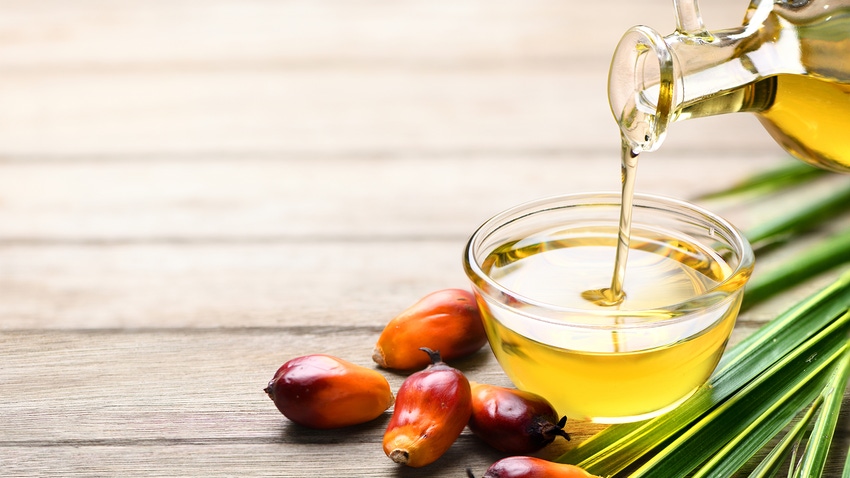Popularity of versatile palm oil breeds debate on sustainability and health
Palm oil gets a bad rap. But is it all bad? Here, we weigh its pros and cons in food and beverage production.

At a Glance
- Palm oil is versatile, cost effective and contributes significantly to global food production.
- Palm oil production poses severe environmental risks, including deforestation and habitat destruction.
- Some consumers avoid palm oil due to sustainability concerns, while research on its health effects remains inconclusive.
Palm oil derives from the fruit of oil palm trees, known as Elaeis guineensis. Palm oil is commonly available as palm kernel oil, made from crushed palm kernels, or crude palm oil, made from the fruit of the oil palm trees. While palm oil is used in a range of consumer goods, research suggests nearly 85% of the global palm oil supply is used in food and beverage.
Despite palm oil’s popularity, the ingredient’s use has become a hot topic of debate.
Pro: Palm oil is versatile in application
As a semi-solid oil, palm oil can be fractionated to create liquid palm olein, which has a low melting point, and solid palm stearin, which has a high melting point — making the oil suitable for a wide range of food applications. Plus, solid palm stearin can provide the solid fat functionality needed in some applications without the use of hydrogenated trans fats.
Palm oil also offers a neutral taste profile and a unique content of saturated fatty acids and antioxidants, which helps improve the shelf life of finished food products compared to other oils.
Pro: The oil palm is a prolific crop
Oil palm is a very efficient crop compared to other vegetable oil-producing crops. According to the World Wildlife Fund (WWF), palm oil supplies 40% of the world’s vegetable oil demand while using less than 6% of the land allocated to vegetable oil production across the globe. Also, because the oil palm is a well-producing crop, it sustains the livelihoods of millions of smallholder farmers, WWF reported.
Pro: Palm oil is cost effective
Palm oil has the lowest production costs compared to alternative oils. That means lower costs for manufacturers. According to Federal Reserve Economic Data (FRED), the global price of palm oil in January was about $815 per metric ton. That’s compared to about $1,045 per metric ton of soybean oil, $930 per metric ton of rapeseed oil and $1,140 per metric ton of sunflower oil, to name a few.
Con: Unethical palm oil production poses a severe environmental risk
Oil palm agriculture has been pinpointed by researchers as a cause of deforestation in areas where palm oil is produced. Deforestation can put high numbers of animal species at risk of extinction, while increasing greenhouse gas production. One study found 45% of oil palm plantations in Southeast Asia came from areas that were forests in 1989.
Con: Some consumers are turning from palm oil
In a survey commissioned by Nestlé and conducted by InSites Consulting, almost half (45%) of the respondents, Millennial consumers in the U.K., said they tend to avoid products that contain unsustainable palm oil.
Con: Research is conflicted about the health of palm oil
The jury is out on the potential health effects of palm oil. Some research wagers modest intake of palm oils provides cardioprotective, antidiabetic and anti-inflammatory effects, while others contend palm oils are links to increased cholesterol levels and higher risk of death from heart disease.
About the Author(s)
You May Also Like






